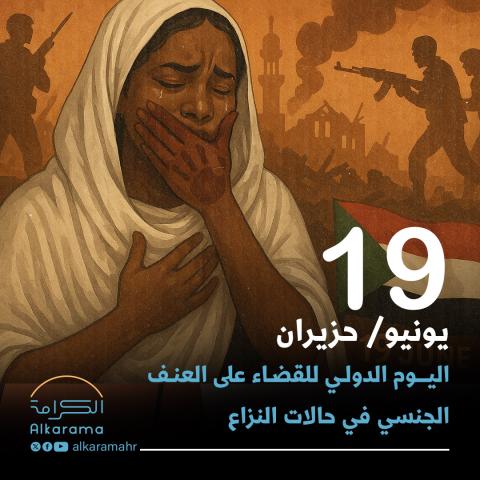
Ten years ago, the United Nations General Assembly proclaimed, through its resolution A/RES/69/293 dated 19 June 2015, the International Day for the Elimination of Sexual Violence in Conflict, observed each year on 19 June. This day aims to “to raise awareness of the need to put an end to conflict-related sexual violence, to honour the victims and survivors of sexual violence around the world and to pay tribute to all those who have courageously devoted their lives to and lost their lives in standing up for the eradication of these crimes.”
According to the United Nations, sexual violence in conflict includes rape, sexual slavery, forced prostitution, forced pregnancy, forced abortion, forced sterilization, forced marriage, and any other form of sexual violence of comparable gravity, committed against women, men, girls, or boys, directly or indirectly linked to a conflict. The term also covers trafficking in persons for the purpose of sexual violence or exploitation in the context of conflict.
In a message on the occasion, UN Secretary-General António Guterres stated: “Too often, perpetrators walk free, cloaked in impunity, while survivors often bear the impossible burden of stigma and trauma. The pain does not end with them. It stretches across lifetimes, ravaging generations of families, and forces the inherited legacy of trauma and suffering on the descendants of survivors.”
The Arab world, torn by multiple violent conflicts, has become one of the primary theatres for this kind of violence. In recent years, there has been a troubling rise in sexual violence cases in several Arab countries, where such acts are used as weapons of war to terrorize civilians and assert control.
During her briefing to the UN Security Council on 23 April 2024, presenting the fifteenth annual report of the Secretary-General on sexual violence in conflict, Pramila Patten, the Special Representative of the Secretary-General on Sexual Violence in Conflict, stated that such violations had increased by 50% in 2023 compared to the previous year. The report covers several Arab countries, including Palestine, Libya, Yemen, Sudan, Iraq, and Syria.
In this context, Alkarama warns of the seriousness of this heinous crime, used as a weapon of war to spread terror among civilian populations and tear apart the social fabric. This issue is particularly alarming in the ongoing conflict in Sudan. Thanks to the efforts of its volunteer monitoring teams on the ground, Alkarama has collected numerous harrowing testimonies documenting sexual violence against women and girls, especially in areas experiencing intense fighting or under the control of the Rapid Support Forces, backed by the United Arab Emirates.
Alkarama therefore considers that sexual violence in armed conflicts across Arab countries constitutes a grave crime and an urgent issue requiring a coordinated response from governments, civil society, and, in particular, human rights organizations. It is imperative to strengthen accountability mechanisms, provide support to victims, and prevent the use of sexual violence as a tool of war.
